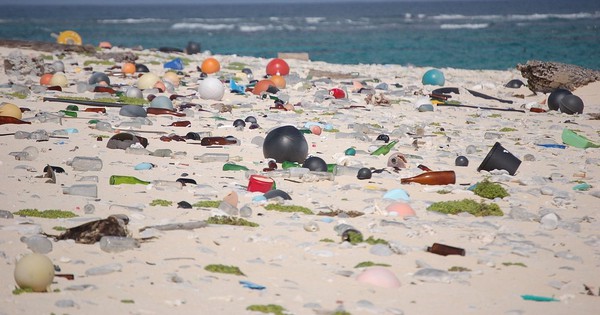
The Earth Island Institute asked for unspecified damages and an order for Coca-Cola, Pepsi, Nestle USA, Procter & Gamble and six other companies to clean up plastic waste that the group says has created a global pollution crisis.

Malaysia will no longer allow other countries to dump their plastic waste on its land. The country has successfully returned 150 containers of plastic waste to 13 mostly wealthy nations since the end of last year.

Mexico City has joined a growing number of cities in banning single-use plastic bags. Mexico City has had problems with excessive amounts of trash for years now. Plastic only recently became recyclable in the city.

Petrochemical manufacturers are building 11 new ethylene plants on the Gulf Coast, with capacity for polyethylene growing by 30 percent as developing nations' demand for petrochemical/chemical products continues to increase.

Hawaii's most populated island is implementing tough new rules for packaging. Honolulu City will ban food and beverages from being served in polystyrene containers and with disposable utensils or plastic straws from 2021.

If you pulled 1,000 liters of water out of the ocean, how many small bits of plastic would you expect to find? Ten pieces? One hundred pieces? 8.3 million pieces of what researchers call "mini-microplastic" is the finding of an alarming new study.

Researchers from the Sweden-based International Pollutants Elimination Network (IPEN) have found that plastic waste shipped from Western countries is contaminating Indonesia's food supply.

Plastic bags will be banned in retail and restaurants as of 2022. The ban will apply to bags under 50 microns but not to biodegradable bags. However, the ban will not apply to bags used for packing fresh fish and meat, bulk food and ice.

The report audited 484 clean-ups in over 50 countries and six continents in September to identify the biggest polluting companies. The results are - Coca-Cola is the biggest global plastic polluter for the second year in a row.

Dutch researchers have found recently announced that cells exposed to microplastics experience cell death three times faster than those that are not. With microplastic pollution everywhere, the findings are sobering.

Boyan Slat, the creator of the Ocean Cleanup project, tweeted that the 600 metre-long (2,000ft) free-floating boom had captured and retained debris from what is known as the Great Pacific Garbage Patch.

Scotland has banned plastic-stemmed cotton swabs, in a move to help reduce plastic pollution in the country. Bits of plastic Q-tips get washed up onto beaches and are harmful to marine life and local animals.

The island of Tristan da Cunha is halfway between Argentina and South Africa. Recent study shows that it is hugely polluted by plastic that comes from international shipping.

The Pact is a set of guidelines and suggestions, including initiatives such as eliminating single-use plastic, reducing micro-pollution from synthetic materials, coming up with designs using old clothes and finding ways to recycle.

Studies have found that microplastics are in the human food chain. Recently Plastic by-products have been discovered in blood and urine samples of young children. They were found in 97% to 100% of the test cases.